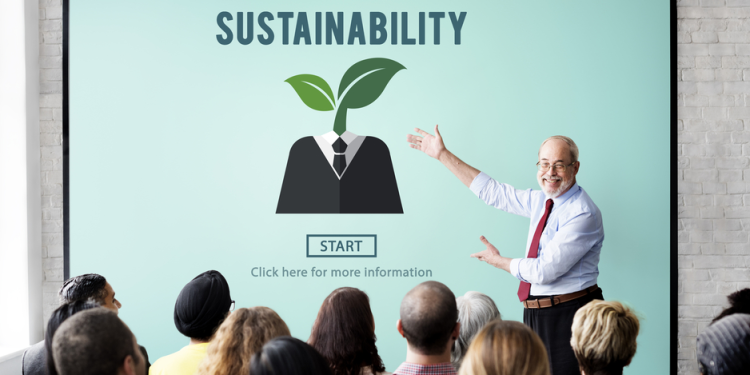
Sustainability has become a keyword for businesses, but what can you do to help make your business more sustainable? There are a few simple steps you can take that will help you move towards a more sustainable business model. From recycling to community projects, a few changes and developments can make your business more environmentally-friendly and socially conscious.
Be energy conscious

Most businesses rely on a fair amount of technology and electricity to get the job done, and a few simple adjustments can make a significant difference to your business' sustainability.
While turning off computers at the end of the day may seem like common sense, it can both be a helping hand to your electricity bill and improve your environmental impact. Many people simply turn off their screen or log out when they are finished for the day, whereas completely shutting down your computer when not in use can save a significant amount of energy usage. This, of course, also goes for things such as lights and air conditioning.
Depending on whether it is financially viable, replacing old appliances with energy efficient ones can also help move your business towards sustainability (and can contribute to reducing utility bills).
Recycle and consume responsibly

If you do decide to upgrade to more energy efficient equipment or appliances, don't just throw away the old ones – recycle them! Some places may even pay for older models or have an exchange system allowing you to hand over your older goods for a discount on newer ones. You can also offer facilities in the workplace to encourage more traditional recycling such as paper, cardboard, and plastic.
Technology can also be helpful in improving sustainability. Cloud computing, for example, can help prevent the need to get through reams of paper printing out hard copies of documents for employees in different locations. BYOD (bring your own device) or device provision schemes can help ensure that employees have portable devices (be it tablets or laptops) on which to view documents, regardless of their location.
Another way to keep down paper consumption, in particular, is to encourage employees to reduce the amount of documents or emails they print. Often, documents are printed out to be read, but reading on-screen can reduce significantly paper consumption. Again, this is where portable devices can help this approach to be adopted.
Be socially conscious

Although sustainability may have originally pertained solely to environmental concerns, the term has since expanded, with sustainability also encompassing working harmoniously and productively within your local community. The development of the concept of social entrepreneurship in recent years highlights this trend towards a socially conscious business model. An example of this lack of social regard can be seen in Snapchat's expansion in Venice Beach, California, which saw residents becoming increasingly angry at the company's domination of the area in comparison to what it was contributing to the community.
It is often easier for those located in smaller communities to make a difference to the local society, be it through offering workshops or free services to NGO's. You can also work with NGO's to help the wider community, be it towards a goal of social or environmental development, depending on your company values.
Communicate your goals

Set goals for your business regarding what you hope to achieve over a certain period, and be sure to keep them in the mind of employees. Communicate what your company's beliefs and policies are regarding sustainability, and establish what is best-practice, from recycling to use of devices. Having the policies and ideas is all good and well, but ensuring they are implemented is all the more important.
You should also communicate your sustainability goals beyond your company; it can be a selling point to some clients or customers. People are becoming increasingly ethically conscious and knowing that the company from which they are buying products or which they are working with is sustainable can be a draw. It can also be appealing to potential employees who similarly may find it more satisfying on a personal level to work for a business with a sustainable approach and goals.



















